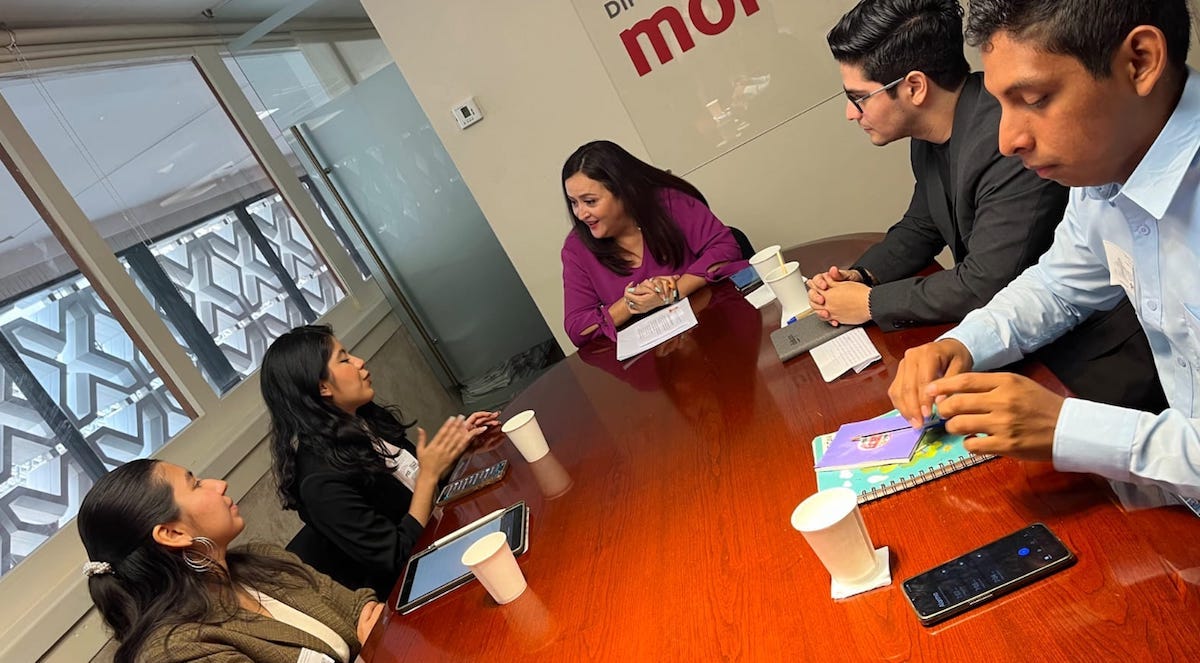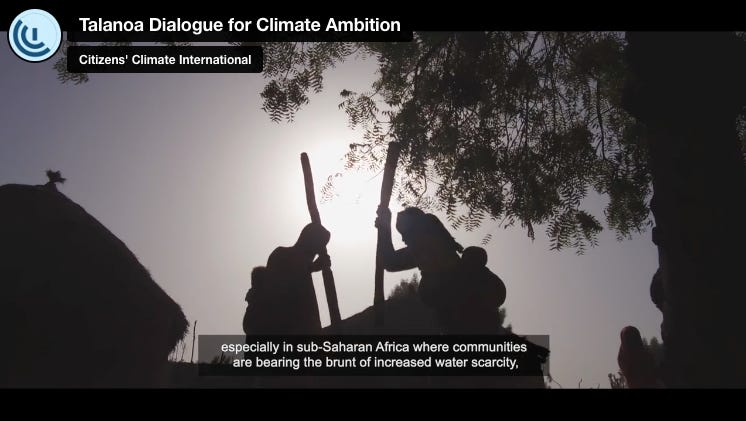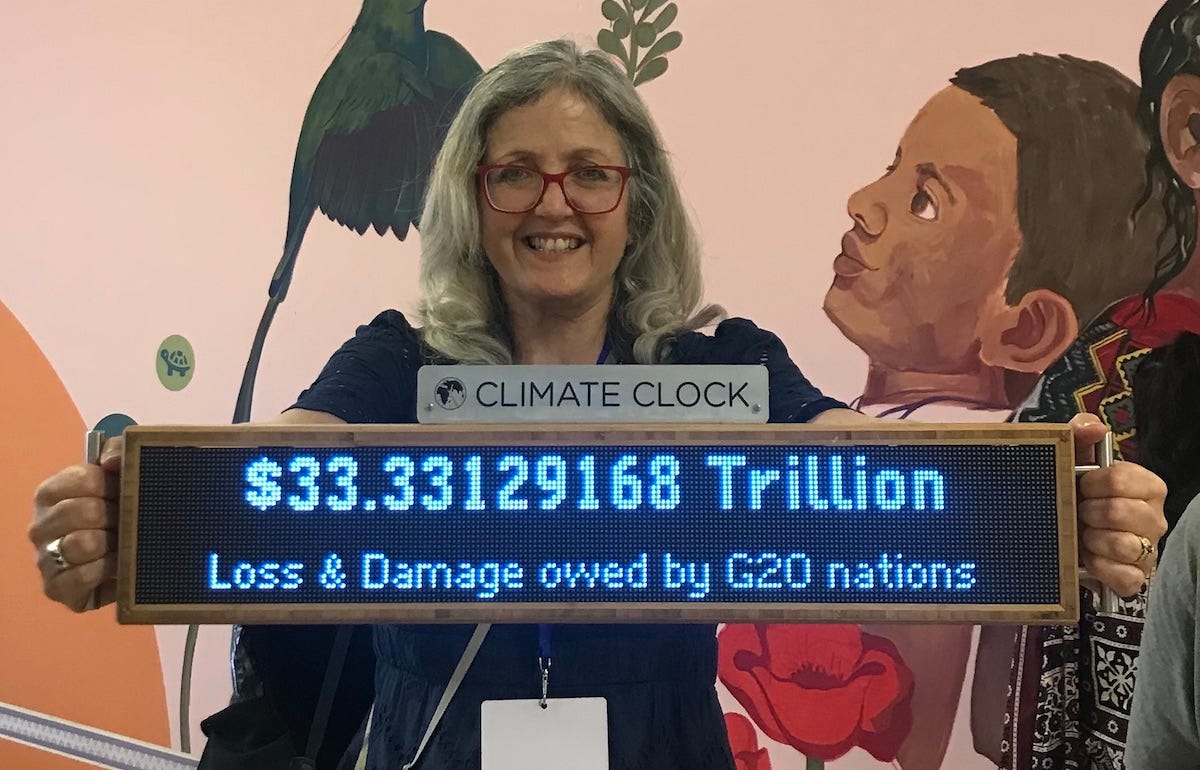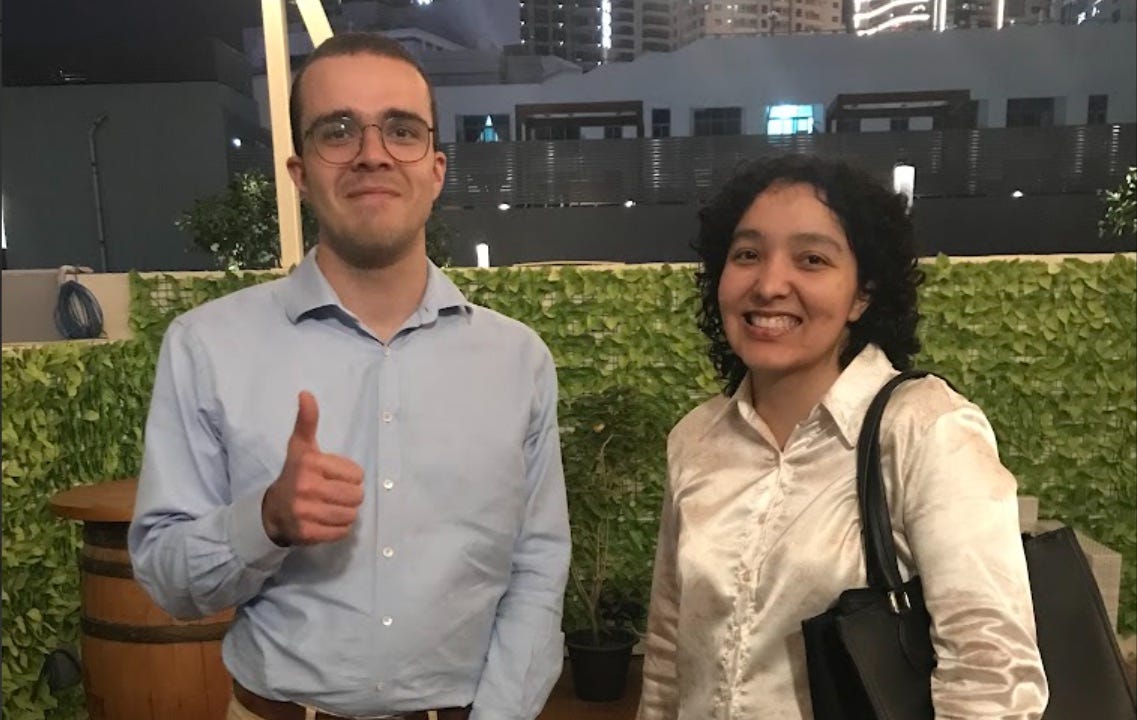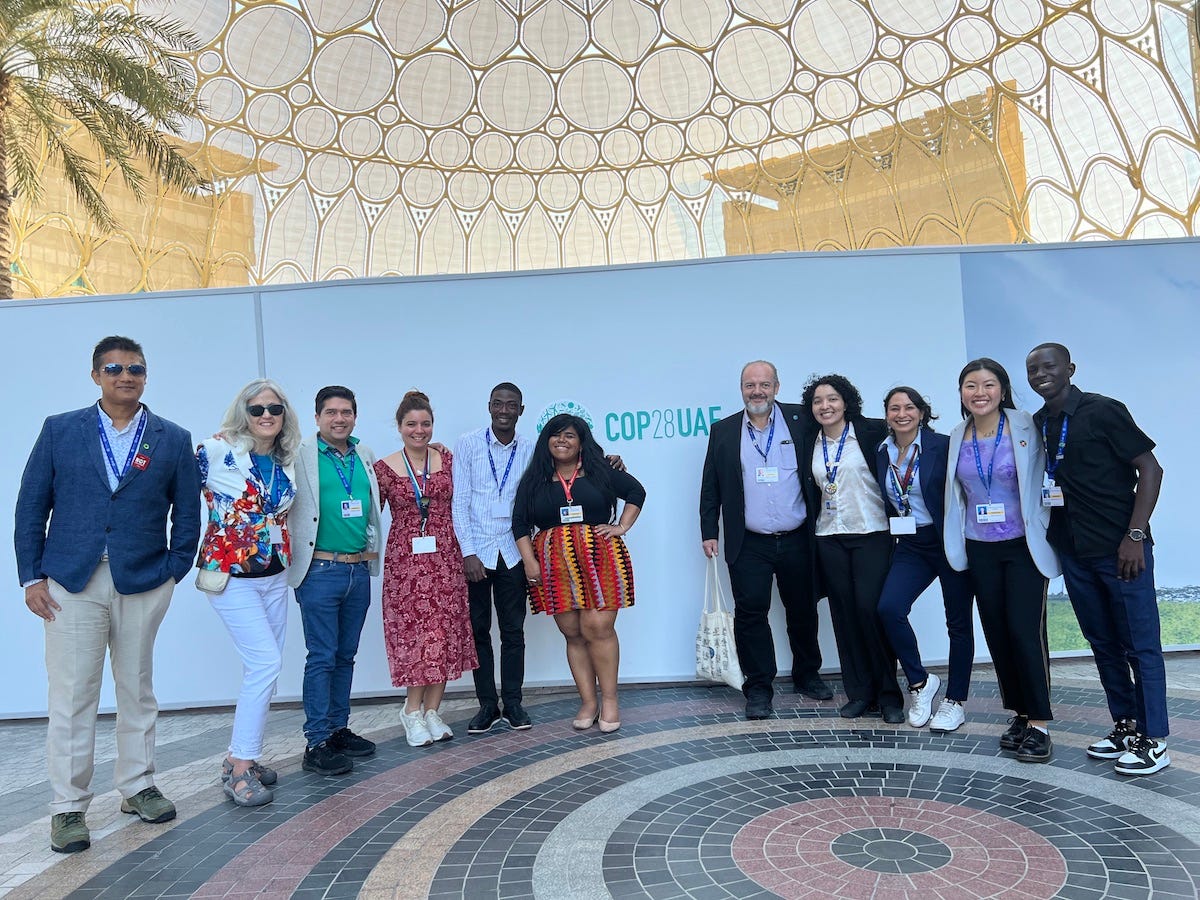Movement toward sustainability must accelerate, and CCI is up for the challenge
NEWSLETTER, YEAR IN REVIEW—CCI chapters met and lobbied in 2023; International action focused on redirecting financial flows to transition away from fossil fuels; CCI’s assessment of COP28.
As we look back on 2023, the hottest year in recorded history, we see the undeniable impact of climate change being felt by more and more of our fellow human beings. Not surprisingly, that impact was felt hardest in the world’s poorest countries that have contributed the least to planet-warming emissions responsible for the deteriorating condition of our climate. However, increased awareness of our collective plight led this year to breakthroughs that hold the possibility of better days to come. At the COP28 conference in Dubai, the nations of the world agreed for the first time on the need to transition away from fossil fuels, and the first contributions were made to a global fund for loss and damage to help nations struggling with the devastating effects of climate change. How quickly the world moves forward with these and other solutions in the coming year depends on the political will generated in every nation to take action. Based on what our volunteers did this past year, they appear up for the challenge.
CCI chapters convened, lobbied in 2023
From Africa to Mexico to Europe and to Canada, Citizens’ Climate International volunteers gathered to learn about climate solutions and acquire the skills to be effective advocates. They then engaged elected officials to voice their concerns about climate change and urge them to take actions to avert the worst consequences of a changing climate. Some of the highlights:
In October, 33 volunteers in Nigeria held meetings with 10 legislators, asking for a carbon tax and dividend. They also extended an invitation to participate in the inter-parliamentary dialogue on climate change in Washington this June.
In September, CCL Canada hosted a breakfast at Queen’s Park in Toronto and 30 climate advocates met with 13 provincial parliamentarians and four staffers in total throughout the day.
CCL Canada volunteers held their “Undaunted” conference in Ottawa to do strategic planning, attend a Natural Resource Committee meeting that included oil and gas executives and met with six members of Parliament Hill in Ottawa and another dozen parliamentarians in the weeks following.
In August, young volunteers in Mexico met with 22 lawmakers to move the nation toward a clean energy economy.
Just months after launching their Bucharest chapter, CCI volunteers met with members of the Romanian Parliament to discuss carbon pricing.
CCI volunteers in Germany held a conference in Berlin and met with 25 members of the Bundestag.
Parliamentarians from Ghana come to Washington: In June, CCI welcomed the first ever visiting parliamentary delegation from another country to the 2023 Citizens’ Climate Lobby conference in Washington, DC. The Honorable Yves Hanson-Nortey and the Honorable Ebenezer Okletey Terlabi (Above, center rear) were designated to represent the Parliament of Ghana. They joined CCL volunteers in select plenary sessions and had meetings on Capitol Hill and with multilateral institutions. They inspired a group of students who were eager to ask questions and discuss emerging directions in climate-related policy around the world. Later in November, volunteers in Ghana received advocacy training from CCI and then lobbied members of Parliament.
Citizens' Climate Europe joins carbon pricing group: Our European group has been selected as a member of the expert group for the topic of Emissions Trading System Two (ETS2) implementation by European Commission Directorate-General Climate Action. The ETS2 is the expansion of the European Union Emissions Trading System to cover buildings, roads, and additional sectors. This second ETS might make room for other modes of carbon pricing to drive decarbonization. In particular the policy creates some options for member states that enable greater climate ambition and public engagement.
International actions
Redirecting financial flows, one of the keys to transition away from fossil fuels and help nations adapt to climate change, was a big focus for Citizens’ Climate International in 2023. We invited stakeholders around the world to voice their concerns and ideas relating to this and other topics in a series of Talanoa Dialogues. In the most recent dialogue, released just before COP28, our leaders from across the globe shared their passionate conversations in a series of short videos about shifting money in a way that makes our planet prosperous and fair for everyone. You can view a compilation of those videos here.
CCI took further action on financial flows in 2023 by asking World Bank executive directors for fair and sustainable development. Volunteers from many nations sent letters asking the Bank to:
Invest to support the health of all human beings and all of nature.
Recognize human rights, and don’t punish the vulnerable.
Support multilateral cooperative arrangements to accelerate integral human development.
Include stakeholders in design, delivery, and tracking of development finance.
CCI followed up those letters by attending regional meetings of the World Bank to provide input on the Bank’s practices and priorities going forward, input that will prove valuable as the World Bank assumes responsibility for the Loss and Damage Fund to compensate and help poorer nations struggling with the impact of climate change. Check out CCI’s briefing note submitted to the World Bank in the summer.
As policy lags behind the accelerating pace of climate change, and recognizing the window for successful climate-resilient development is closing, CCI endorsed the Fossil Fuel Non-Proliferation Treaty. We helped recruit participants and actively participated in their facilitated events for developing principles of the FFNPT for the North American and Gender constituencies. At the June UNFCCC meetings, Citizens' Climate International was cohost alongside Stand, WWF, FFNPT for the event Delivering a fossil free, 1.5˚C aligned energy system: the role of the Global Stocktake. On December 7, at COP 28, CCI Program Director Cathy Orlando attended the FFNPT convening of NGOs to strategize for 2024.
At COP28, as part of CCI’s emerging work on Food, Finance, and Democracy to enhance national climate action strategies, we signed on to the Non-State Actors Call to Action for Transforming Food Systems for People, Nature, and Climate. CCI’s commitment in answering the Call to Action is to provide education and empowerment to citizen volunteers, policy-makers, media, and other key stakeholders, and to support transformative efforts, so that food systems can be part of the transition to a climate-resilient economy that improves lives and livelihoods.
CCI leadership utilizing the levers of political will
To move climate solutions forward, CCI volunteers employ five levers of political will to influence decision makers in their countries: lobbying, media relations, grassroots outreach, grasstops engagement, and chapter & volunteer development. Here are a few examples of our volunteers using those levers in 2023:
At COP28, CCI volunteers Marin Chaveyriat and Alba Pena engaged with national delegations — the grasstops — to promote Canada’s Global Carbon Pricing Challenge. Marin produced and distributed a brochure about the challenge.
To raise public awareness about climate change and to influence elected officials to act on solutions, CCI volunteers pulled the media lever, and in August CCI Senior Communications advisor Steve Valk trained volunteers in Africa to write and submit letters to the editor in their local newspapers.
In Mexico, Alba Peña pulled the grassroots outreach lever by leading a series of presentations to hundreds of young people on the EnROADS policy simulator, which enables users to develop their own solution to climate change with a combination of policies.
Pulling again on the grassroots outreach lever, on December 1 volunteers in Mutare, Zimbabwe participated in a national day of tree planting and planted 270 trees. They also launched a newsletter called Voices this year too.
Prior to and during COP28, Canadians lobbied elected officials by sending 374 letters about climate solutions, like carbon pricing that rebates revenue to citizens.
In an example of grasstops engagement, CCL UK member Jane Renwick made connections at a climate conference hosted by the Women’s Institute, one of the most trusted and influential groups in Great Britain.
In another example of grasstops engagement, in March CCL Colombia participated in the United Nations Water Conference in New York City.
More grasstops engagement: Roland Olivier Dedi—our CCI volunteer leader Abidjan, Côte d'Ivoire—was selected by the World Bank as a youth delegate for the fifth meeting of the World Bank Group's International Corruption Chasers Alliance from June 14 to 16!
In June, CCI Nepal leader Hement Raj Kaphale was honored with the Everest Climate Action Award for his work as Nepal Director of 8 Billion Trees, an organization carrying out large-scale tree planting and tree conservation operations.
In August, Ann Grace Akiteng, CCI Teso Group Leader in Northern Uganda, received an award for Outstanding Female in Climate Action at the Grassroots Level.
In June, CCL Chile pulled the chapter & volunteer development lever by holding a planning and strategy meeting for their national team.
Internationally, CCI launched chapters in Bucharest, Romania, Tel Aviv, Israel, Belgrade, Rural Saskatchewan, Serbia, Nepalganj, Nepal, Nairobi, Kenya and Harare, Zimbabwe.
Earth Diplomacy Leadership Initiative
For climate advocates who attended COP28 in person or who participated online, CCI offered a series of workshops to demystify the United Nations Climate Change negotiations process and dive into the topics that COP28 would deal with. CCI teamed up with the Fletcher School at Tufts University to present the Earth Diplomacy Leadership Initiative.
The six workshops covered:
The Process — A review of the history, structure, and details of the United Nations Climate Change negotiation process.
The Stakes — What the science tells us and the impact it could have on the livability of our climate and its effect on our economy and social and political stability.
Mutual Gains — Led by Mieke van der Wansem of The Fletcher School’s Center for International Environment and Resource Policy, this approach looks at negotiations from the standpoint of achieving outcomes that can be mutually beneficial to all parties.
Working Across Conventions — Featuring Rachel Kyte, Dean Emerita of the Fletcher School of Law and Diplomacy at Tufts University, this session covers negotiations in the context of various international agreements.
Non-Market Cooperative Acceleration — Explores some of the more ambitious potential directions for intergovernmental work on non-market (meaning “not emissions trading”) climate cooperation.
Embracing Complexity at COP28 — With nearly 200 nation states needing to reach consensus across five broad agendas, it gets complicated. Former Costa Rican President Carlos Alvarado Quesada presents in this session.
On Jan. 10, there will be a debriefing workshop to review formal outcomes, experiences of engagement from negotiators and observers, signs of progress, and areas that will need urgent attention in 2024. Details and how to register here.
CCI’s take on COP28
The big “breakthrough” that made headlines coming out of COP28 was language in the final agreement about “transitioning away from fossil fuels,” the first time the need for such a transition has ever been articulated in a COP agreement. It affirms what we have known for decades: Fossil fuels are at the root of the climate problem and must be phased out. But, as CCI acknowledges in the final dispatch from the conference, “many nations are not honoring that implicitly understood reality, which has been the legal reality since the Convention was agreed in 1992.”
Looking past the headlines, CCI saw several areas where real progress was made:
The first Global Stocktake since the Paris Agreement, aimed at assessing progress, identifying urgently needed areas of improvement, and setting in motion the upgrading of national climate plans;
A new Framework for the Global Goal on Adaptation, aimed at providing needed targets, metrics, action detail, and expanded resources for reducing harm and building resilience against climate shocks;
A series of food systems advances (more on this below), including language in the formal outcomes of the Global Stocktake and the Global Goal on Adaptation processes.
“In all three of these areas, what will count is real-world implementation. The GGA Framework is not itself sufficient to achieve the comprehensive vulnerability reduction and resilience building required to secure a livable future for people, communities, and countries. Action is what follows: How we convert the legal decision text into policy, investments, everyday practice, and outcomes.”
For a comprehensive assessment of COP28 and the actions needed going forward, read the Dec. 19 dispatch.
The Right to Resilience
The Universal Declaration of Human Rights, proclaimed by the United Nations General Assembly in 1948, sets out 30 fundamental human rights to be universally protected, everything from the right to equality to the right to education to the right of religious choice. Citizens’ Climate International suggests that another right should be added to this list: The right to resilience, which is another way of saying the right to a livable future.
CCI’s Right to Resilience Report, released Dec. 8, lays out six Principles for Reinventing Prosperity:
We are all future-builders.
Health is a fabric of wellbeing and value.
Resilience is a baseline imperative.
Leave no one behind.
Design to transcend crisis.
Maximize integrative value creation.
The report places special emphasis on the third principle — “Resilience is a baseline imperative” — and goes on to say, “If we manifest this principle consistently in the political, economic, and technological response to climate breakdown, policy, planning, and incentives should not treat resilience as an unreachable ideal, but as a legitimizing duty.”
Released during COP28, the report acknowledges the ways that livability is under threat and that a livable future will require the right to resilience be honored and investments and incentives favor planetary health and security.
Transforming food systems
One of the more encouraging developments at COP28 was the progress made toward transforming food systems to be more sustainable and equitable. 159 nations have signed on to the COP28 UAE Declaration on Sustainable Agriculture, Resilient Food Systems, and Climate Action, committing those nations to integrate food systems and agriculture into their Nationally Determined Contributions to cut emissions and adapt to climate impacts.
CCI co-hosted a side event at COP28 — Cooperative Financing for Healthy, Climate-Resilient and Inclusive Food Systems — to report on the establishment of the Good Food Finance Facility, which will serve as both a coordinating mechanism and a mechanism for delivery of finance. The Facility will “bring a multitude of players and innovation together to foster good food finance optimizing investment cost and risk sharing with climate and soil-friendly best practices fostering productivity.”
CCI leader featured in documentary
CCI’s Africa Regional Coordinator, David Michael Terungwa, is featured in a recently-released documentary, “Shifting Power.” The film illustrates the harm being done to Africa by fossil fuels and efforts by citizens to bring about change. “One thing that is lacking to solve climate change is political will,” said Michael. “Before now, it used to be us civil society organizations versus the policy maker, and this results in protests which never yield any results. Another approach is to build that relationship through which we lobby the policy makers to make laws that will help solve the climate crisis.”
Coming up
Join one of CCI’s monthly “Get to Know Us” calls around the third Wednesday of the month to learn how you can help drive evidence-based and socially-just climate action. There are three convenient times to select from. Register here.
Global climate leaders are invited to join our monthly CCI Global Check-In Calls, which takes place on the second Tuesday of the month. Global leaders, please look in your emails.
Transforming Ontario’s Electricity Sector II: Ontario Lobby Prep and Breakfast at Queen’s Park. Feb. 25 - Feb. 26. Register here.
CCL Canada’s conference and lobby days, “Dream No Small Dreams,” takes place June 2-4 in Ottawa. Registration opens in February.
Save the date for Citizens’ Climate Lobby’s national conference and lobby day in Washington, D.C., June 8-11. Registration opens in March.





